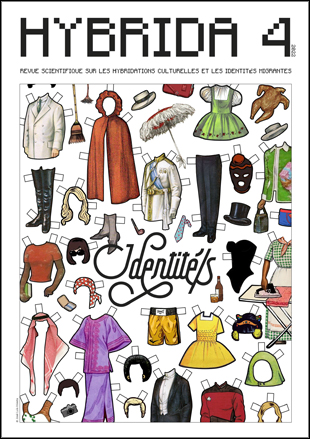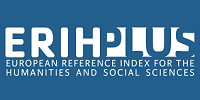Spatial relocation and resettlement of identity in Milan Kundera’s work
DOI:
https://doi.org/10.7203/HYBRIDA.4.24014Keywords:
Milan Kundera, Identity, Space, Ontological quest Abstract
Abstract
In most of his novels, Milan Kundera depicts a constant back-and-forth between the Czech Republic and other countries, mainly in the West, through the travels of his characters. We question these centrifugal or centripetal im/migration flows (sometimes not going beyond the stage of a simple project) which seem to participate in the elaboration of a poetics that seeks to establish a communication network between spatial displacement and the refocusing of identity. Three axes seem to reveal the author’s questions around this issue: firstly, the question of exile and/or immigration as a pretext for evoking the rejection of the native country and the flight from others or from oneself; secondly, that of immigration in reverse, which looks at the loss and reclaiming of space as a revelation of individual identity; and thirdly, that of the demystification of common or community space to constitute a journey towards the reappropriation of the self. We start from this third axis in a study focused on the question of identity in some of his novels.
 Downloads
Downloads
 References
References
Baudry, R. et Juchs, J. (2007). Définir l’identité. Hypothèses, (10), 155-167. https://doi.org/10.3917/hyp.061.0155
Bourgouin-Castonguay S. (2014) Entre histoire et vérité : Paul Ricœur et Michel Foucault. Généalogie du sujet, herméneutique du soi et anthropologie [Thèse de Doctorat, Université Paris-Est Créteil / Université Laval Québec]. Banque de données. https://tel.archives-ouvertes.fr/tel-01130368
Boyer-Weinmann, M. (2009). Lire Milan Kundera. Armand Colin.
Chvatik, K. (1995). Le monde romanesque de Milan Kundera. Gallimard.
Collot, M. (1988). Le thème selon la critique thématique. Communications, (47), 79-91. https://doi.org/10.3406/comm.1988.1707
Collot, M. (2011). Pour une géographie littéraire. Fabula-LhT, (8). http://www.fabula.org/lht/8/collot.html
Gaulejac, V. (2002). L’Identité. In J. Barus-Michel, E. Enriquez & A. Lévy (Dirs.), Vocabulaire de psychosociologie (pp. 174-180). Érès.
Huizinga, J. (1951). Homo ludens. Essai sur la fonction sociale du jeu. Gallimard.
Kaufmann, J-C. (2004). L’invention de soi. Une théorie de l’identité. Armand Colin.
Kheriji, R. (2021). Rachid Boudjedra et Milan Kundera. Lectures à corps ouvert. L’Harmattan.
Kundera, M. (1983). Un Occident kidnappé: ou la tragédie de l’Europe centrale. Le Débat, 27, 3–23. https://doi.org/10.3917/deba.027.0003
Kundera, M. (1989). L’Insoutenable légèreté de l’être. Gallimard.
Kundera, M. (1990). La Valse aux adieux. Gallimard.
Kundera, M. (1994). Risibles amours. Gallimard.
Kundera M. (1995). Le Livre du rire et de l’oubli. Gallimard.
Maingueneau, D. (2013) L’ethos : un articulateur. COnTEXTES, (13). https://doi.org/10.4000/contextes.5772
Maingueneau, D. (2014). Le recours à l’ethos dans l’analyse du discours littéraire. In J. Meizoz, J.-C. Mühlethaler et D. Burghgraeve (Éds.), Posture d’auteurs : du Moyen Âge à la modernité. http://www.fabula.org/colloques/document2424.php
Pârlea, V. (2020). Milan Kundera ou l’insoutenable corporalité de l’être. L’Harmattan.
Picard, M. (1986). La lecture comme jeu. Minuit.
Richard, J. P. (2016). L’Univers imaginaire de Mallarmé, Seuil. Ouvrage original publié en 1961.
Ricard, F. (2003). Le dernier après-midi d’Agnès. Gallimard.
Ricœur, P. (juillet/août 1988). L’Identité narrative. Esprit, (7-8), 295-304. https://www.jstor.org/stable/24278849
Ricoeur, P. (1990). Soi-même comme un autre. Seuil.
Schoentjes, P. (2015). Ce qui a lieu. Essai d’écopoétique. Wildproject, collection « Tête nue ».
Schoentjes, P. (2001). Poétique de l’ironie, Seuil. Stock, M. (2004). Espace : un concept au travail. Travaux de l’Institut Géographique de Reims, 30(119-120), 5-8. https://www.persee.fr/doc/tigr_0048-7163_2004_num_30_119_1476
Downloads
Published
How to Cite
-
Abstract521
-
PDF (Français )296
Issue
Section
License
![]()
All the documents in the OJS platform are open access and property of their respective authors.
Authors publishing in the journal agree to the following terms:
- Authors keep the rights and guarantee HYBRIDA the right to be the first publication of the document, licensed under a Creative Commons license Attribution-NonCommercial-ShareAlike 4.0 International (CC BY-NC-SA 4.0) that allows others to share the work with an acknowledgement of authorship and publication in the journal.
- Authors are allowed and encouraged to spread their work (once published) through electronic means using personal or institutional websites (institutional open archives, personal websites or professional and academic networks profiles) once the text has been published.
















